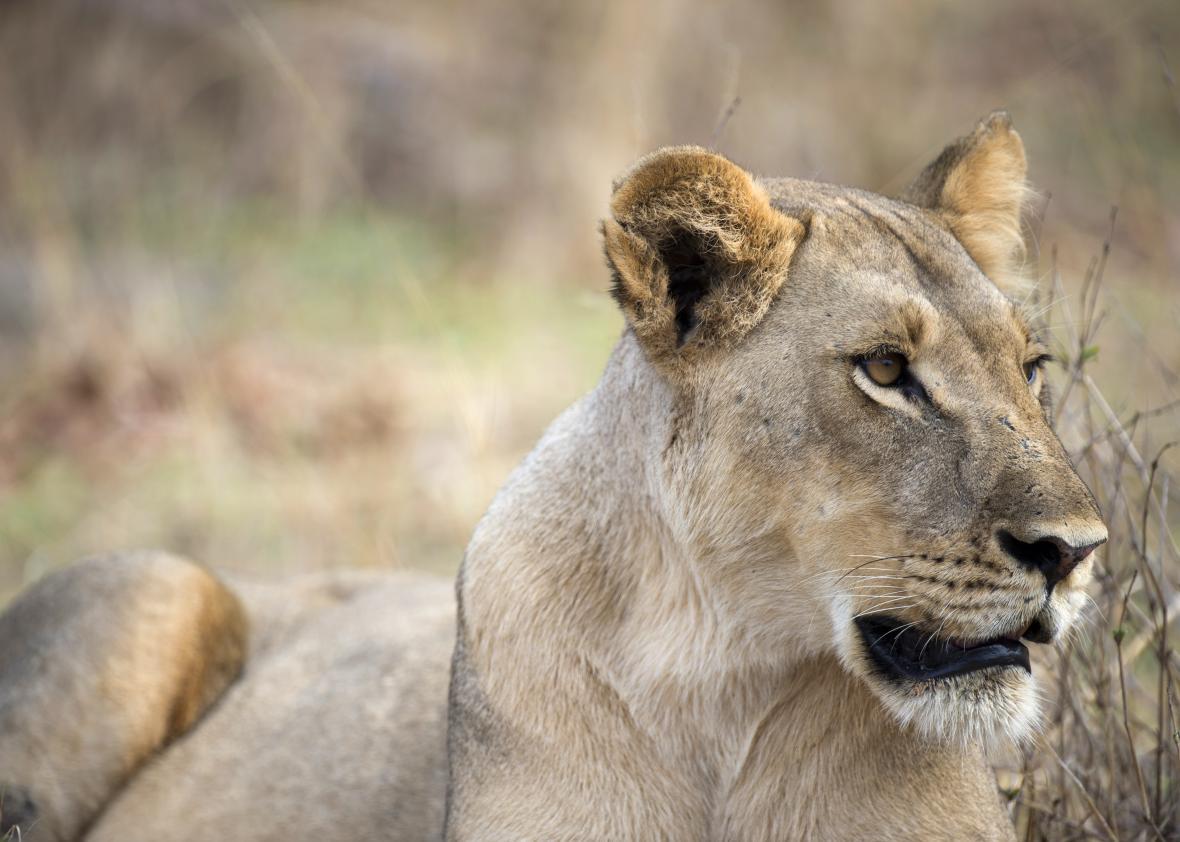As outrage grows over Minnesota dentist Walter Palmer’s alleged killing of a lion in Zimbabwe, some have called for Palmer’s extradition to Zimbabwe to stand trial, or for his prosecution in America. Unfortunately, Palmer’s whereabouts are currently unknown, though Zimbabwean authorities are looking for him. Once he’s located, could America prosecute Palmer here for his alleged misdeeds in Zimbabwe if he has already returned home? Or, failing that, could the government extradite him to Zimbabwe to stand trial?
Yes. The United States is in an excellent position to try Palmer—or to extradite him to Zimbabwe. Oddly, though, the alleged crime that could really do Palmer in isn’t the killing of an endangered animal. It’s the alleged bribery of wildlife guides to gain access to his prey.
If Palmer did indeed kill Cecil, that’s not a violation of the Endangered Species Act. Under that federal law, it is illegal to “take” (that is, wound or kill) an endangered animal. The law also creates some protections for animals that are “threatened” but not yet endangered. When an animal is threatened, federal law prohibits the possession, transportation, or shipment of the animal (or part of its carcass, as a trophy) across state or international borders. But the U.S. doesn’t consider the African lion to be endangered or threatened. (U.S. Fish and Wildlife Service has proposed revising the lion’s status to list it as threatened; a final decision is expected in October.)* And even if the lion were endangered, the Endangered Species Act probably doesn’t apply to acts committed outside the United States. In other words, on its own, the killing isn’t punishable in America.
However, Palmer didn’t just stumble upon the lion: According to Zimbabwean authorities quoted in the Independent, he allegedly bribed wildlife guides $55,000 for the honor. And a federal law called the Travel Act forbids foreign travel with the intent to engage in certain “unlawful activities” overseas. One of those activities is bribery. If Palmer traveled to Zimbabwe to hunt exotic species, and planned to bribe guides if necessary to access his prey, that offense would fall within the broad scope of the Travel Act. Palmer could be prosecuted in America for it.
The second way to make Palmer answer for his alleged crimes would be to extradite him to Zimbabwe to stand trial there. That would be a fairly simple affair. The United States has a generous extradition treaty with Zimbabwe, which contains a “dual criminality” clause. Under the treaty, if an American commits an act in Zimbabwe that is illegal under both American and Zimbabwean law—and which is punishable by more than one year in prison—America is “obligated” to extradite him to Zimbabwe (and vice versa). Palmer’s potential violation under the Travel Act is punishable by up to five years in prison under U.S. law; his alleged bribery is punishable by many years in prison in Zimbabwe. His crime thus fulfills the “dual criminality” requirement of the treaty, and America must extradite him to Zimbabwe if the government so desires.
A trial in Zimbabwe would have its benefits—namely, that the witnesses and evidence would all be close at hand. Plus, the government could prosecute Palmer for his more egregious crime: Hunting without a permit, in violation of Zimbabwe law. A trial in the U.S., on the other hand, would have the guarantees of impartiality and procedural fairness that might be lacking in Zimbabwe. Either way, it’s clear that both countries could prosecute Palmer if they wish to. The odds seem high that Palmer will see his day in court.
*Correction, July 29: This post originally misstated that the African lion is currently considered “threatened” under U.S. law. The government’s proposal to list the lion as threatened has not yet been finalized.
